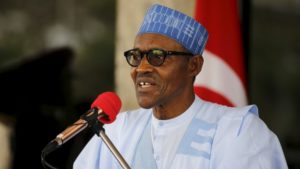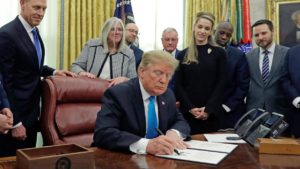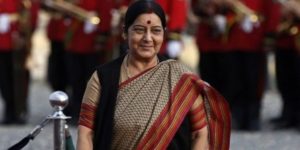 Al Nagah III is the third in the series of the bilateral joint exercise between India and Oman. It will be held between March 12 to March 25 at Oman. Al Nagah III is the third in the series of the bilateral joint exercise between India and Oman. It will be held between March 12 to March 25 at Oman. |
Al Nagah III
|
 India and Costa Rica signed two documents during Vice President Venkaiah Naidu’s first visit to the Central American nation. The documents were signed and exchanged following talks between Naidu and Costa Rican President Carlos Alvarado Quesada. The 2 agreements were signed on waiving visa requirements for Diplomatic and Official passport holders and the signing of the Letter of Intent to collaborate in the field of Biotechnology. India and Costa Rica signed two documents during Vice President Venkaiah Naidu’s first visit to the Central American nation. The documents were signed and exchanged following talks between Naidu and Costa Rican President Carlos Alvarado Quesada. The 2 agreements were signed on waiving visa requirements for Diplomatic and Official passport holders and the signing of the Letter of Intent to collaborate in the field of Biotechnology. |
| Source- ANI News |
 Malaysia has ratified the Rome Statute making it the 124th State party to the International Criminal Court (ICC). Even though Malaysia had helped to negotiate the Rome Statute, it has been long been reluctant to ratify it. Ratification after 20 years is seen as a welcome move. Malaysia has ratified the Rome Statute making it the 124th State party to the International Criminal Court (ICC). Even though Malaysia had helped to negotiate the Rome Statute, it has been long been reluctant to ratify it. Ratification after 20 years is seen as a welcome move. |
Why Malaysia has acceded to the Rome Statute after 20 years?
|
 China has increased its defence budget by 7.5 per to $177.61 billion up from last year’s $165 billion. The 2019 Defence Budget of China stood at 1.19 trillion yuan (about $177.61 billion) which is three times the Indian Defence Budget. China has increased its defence budget by 7.5 per to $177.61 billion up from last year’s $165 billion. The 2019 Defence Budget of China stood at 1.19 trillion yuan (about $177.61 billion) which is three times the Indian Defence Budget. |
China’s Defence Budget
|
| Increases Budget a Cause of Worry? China is demonstrating a more posture towards Taipei and China is facing competing claims in the South China Sea from Vietnam, the Philippines, Brunei, Malaysia and Taiwan together with a territorial dispute with historic rival Japan in the East China Sea. Hence increased Defence Budget of China may be a precursor to a more aggressive stance against its neighbours. China has termed the increase in the defence budget as reasonable and appropriate aimed at meeting the country’s demand in safeguarding national security and military reform with Chinese characteristics. China also argues that China’s defence budget at 1.3 per cent of the GDP is much less than major developing countries which spend two per cent GDP on their defence. China also states that whether a country is a military threat to others or not is not determined by its increase in defence expenditure, but by the foreign and national defence policies it adopts. |
 The United States has officially shuttered its consulate in Jerusalem, downgrading the status of its main diplomatic mission to the Palestinians by folding it into the U.S. Embassy to Israel. The U.S. State Department stated that the decision was driven to increase the efficiency and effectiveness in diplomatic engagements. For decades, the consulate functioned as a de facto embassy to the Palestinians. Now, that outreach will be handled by a Palestinian affairs unit, under the command of the embassy. The United States has officially shuttered its consulate in Jerusalem, downgrading the status of its main diplomatic mission to the Palestinians by folding it into the U.S. Embassy to Israel. The U.S. State Department stated that the decision was driven to increase the efficiency and effectiveness in diplomatic engagements. For decades, the consulate functioned as a de facto embassy to the Palestinians. Now, that outreach will be handled by a Palestinian affairs unit, under the command of the embassy. |
| Source: AIR World service |
 Muhammadu Buhari was re-elected Nigeria’s President, results showed, after a delayed poll that angered voters and led to claims of rigging and collusion. Buhari, 76, took an unassailable lead of more than four million votes as the last states were yet to be declared, making it impossible for his nearest rival, Atiku Abubakar, to win. Muhammadu Buhari was re-elected Nigeria’s President, results showed, after a delayed poll that angered voters and led to claims of rigging and collusion. Buhari, 76, took an unassailable lead of more than four million votes as the last states were yet to be declared, making it impossible for his nearest rival, Atiku Abubakar, to win. |
| Source- DD News |
 Thailand and the United States hosted the annual Cobra Gold military exercise, the biggest activity of its type in the Asia-Pacific region with 29 nations taking part as participants or observers. Apart from the 2 countries, 7 countries who participated in the exercise were India, Singapore, Japan, China, Indonesia, Malaysia and South Korea. The Indian Army participated in the military training exercise with a 14-member contingent. India participated in this exercise for the first time in the ‘Observer Plus’category in 2016 alongside China. Thailand and the United States hosted the annual Cobra Gold military exercise, the biggest activity of its type in the Asia-Pacific region with 29 nations taking part as participants or observers. Apart from the 2 countries, 7 countries who participated in the exercise were India, Singapore, Japan, China, Indonesia, Malaysia and South Korea. The Indian Army participated in the military training exercise with a 14-member contingent. India participated in this exercise for the first time in the ‘Observer Plus’category in 2016 alongside China. |
| Source: The Diplomat |
 US President Donald Trump signed Space Policy Directive-4 (SPD-4), ordering the Pentagon to establish the Space Force as the 6th branch of the United States military, to go along with the Army, Navy, Air Force, Marines, and Coast Guard, in order to secure and extend American dominance of the space domain. US President Donald Trump signed Space Policy Directive-4 (SPD-4), ordering the Pentagon to establish the Space Force as the 6th branch of the United States military, to go along with the Army, Navy, Air Force, Marines, and Coast Guard, in order to secure and extend American dominance of the space domain. |
Donald Trump signs SPD-4 to create US Space Force SPD-4, as the name suggests, is Mr. Trump’s 4th space policy directive. The initial 3 were:
|
| Source: Space.Com |
 External Affairs Minister Sushma Swaraj has been invited to deliver an address at the Organisation of Islamic Cooperation (OIC) in Abu Dhabi. This is the first time that a leader of the non-Muslim country has been invited to the OIC conference. Ms Swaraj will be the Guest of Honour and address the inaugural plenary of the 46th Session of the Council of Foreign Ministers of OIC on the 1st and 2nd of March. External Affairs Minister Sushma Swaraj has been invited to deliver an address at the Organisation of Islamic Cooperation (OIC) in Abu Dhabi. This is the first time that a leader of the non-Muslim country has been invited to the OIC conference. Ms Swaraj will be the Guest of Honour and address the inaugural plenary of the 46th Session of the Council of Foreign Ministers of OIC on the 1st and 2nd of March. |
| Source- Press Information Bureau (PIB) |
 World Bank, United Nations Entity for Gender Equality and the Empowerment of Women (UN Women), and Small Industries Development Bank of India (SIDBI) launched new social impact bonds exclusively for women, called Women’s Livelihood Bonds (WLBs), with an initial corpus of Rs 300 crore. It will enable individual women entrepreneurs in sectors like food processing, agriculture, services, and small units to borrow around Rs 50,000 to Rs 3 lakh at an annual interest rate of around 13% to 14% or less and have a tenure of 5 years. They will be unsecured, unlisted bonds and offer a fixed coupon rate of 3% per annum to bond investors. World Bank, United Nations Entity for Gender Equality and the Empowerment of Women (UN Women), and Small Industries Development Bank of India (SIDBI) launched new social impact bonds exclusively for women, called Women’s Livelihood Bonds (WLBs), with an initial corpus of Rs 300 crore. It will enable individual women entrepreneurs in sectors like food processing, agriculture, services, and small units to borrow around Rs 50,000 to Rs 3 lakh at an annual interest rate of around 13% to 14% or less and have a tenure of 5 years. They will be unsecured, unlisted bonds and offer a fixed coupon rate of 3% per annum to bond investors. |
| Source: The Hindu Business Line |
You need to login to perform this action.
You will be redirected in
3 sec
